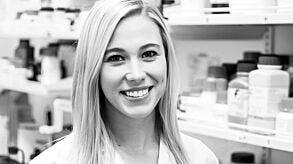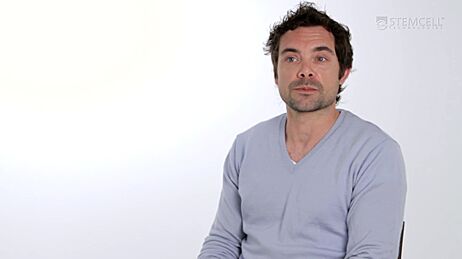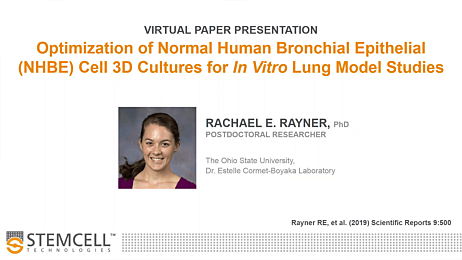Tiffany Marchell discusses her work in the HUbbell lab developing immunotherapeutics for cancer
Using Antibody-Adjuvant Conjugates to Improve the Antiviral Response Against SARS-CoV-2

Tiffany Marchell is a PhD candidate in Dr. Jeffrey Hubbell lab at the University of Chicago, where she works on developing immunotherapeutics for cancer. In this Q&A, Tiffany shares how she and her colleagues are adapting their research to contribute to SARS-CoV-2 knowledge.
As an overarching goal, we hope to trigger robust antibody responses against the key spike proteins that the virus uses to gain entry into cells. We jumped into this project very quickly and within just 4 weeks we are already testing our lead vaccine candidate in mice.
Tiffany Marchell
Please provide a general overview of your research interests.
My research focuses on engineering cancer immunotherapies to increase the immune response against tumors. Many of our projects aim to treat immunologically ‘cold’ tumors that lack the necessary cytotoxic T cell response that destroys cancer cells. Currently, I’m developing a therapeutic using tumor-binding antibodies armed with strong, innate immune-activating payloads. These antibody-adjuvant conjugates link adaptive and innate immunity and increase T cell response against tumor antigens. We hope to leverage this platform to enhance the ‘vaccinal’ effect of clinically validated antibody therapeutics and improve their ability to generate immunity against tumor cells.
Going back to when you first heard about this new coronavirus, what were some of your initial thoughts on how it would affect your research?
As I had already been exploring the use of adjuvants and vaccines in the context of cancer, I recognized the feasibility of translating some of our technology to treat infectious diseases. The day I saw the first confirmed case here in Chicago, I emailed my supervisor that perhaps now is the time for one of our vaccine platforms to really shine! I was only half-joking at the time, but as COVID-19 spread to become the pandemic it is today, we realized that we now have a real opportunity to contribute to the growing body of coronavirus research and to pursue a new therapeutic within our lab.
How are you (or your team) currently studying COVID-19?
I am working as a part of a new collaborative effort to create a vaccine against SARS-CoV-2 based on our developed vaccine platforms. As an overarching goal, we hope to trigger robust antibody responses against the key spike proteins that the virus uses to gain entry into cells. We jumped into this project very quickly and within just 4 weeks we are already testing our lead vaccine candidate in mice. Additionally, we are excited to be collaborating with the Levy Lab at Harvard University, which will be testing our vaccine in elderly mice to model the population at highest-risk for COVID-19 infection.
What are some of the scientific challenges COVID-19 researchers are faced with?
Our lab, like many others, has had to limit the number of people working closely together to keep those working in the lab safe. To get our research off the ground, we've had to set up protein expression for several SARS-CoV-2 viral proteins and develop new assays to help us assess virus-specific immune responses. Although there are many challenges, I do believe it has made the scientific community stronger. There are many other labs here at the University of Chicago also working on COVID-19-related projects. Since starting this project, we have seen an unprecedented amount of collaboration between the labs and sharing of information and resources to help address some of our common challenges.
Explore These Resources
Request Pricing
Thank you for your interest in this product. Please provide us with your contact information and your local representative will contact you with a customized quote. Where appropriate, they can also assist you with a(n):
Estimated delivery time for your area
Product sample or exclusive offer
In-lab demonstration





